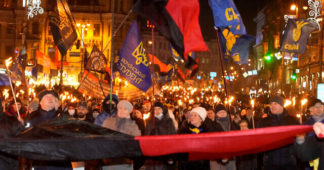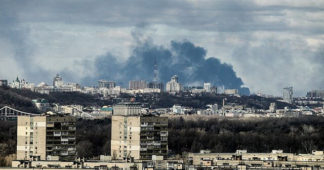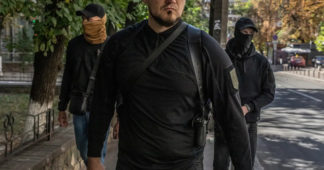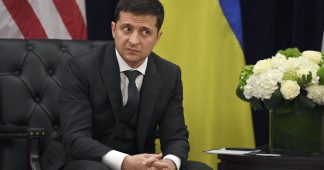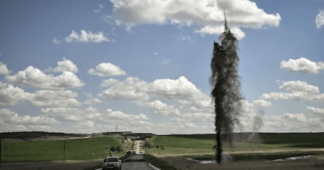Insults and arguments show the social divisions opened up by recruitment drive and years of war
By Shaun Walker in Kyiv
Jun 6, 2024
When Pavlo Pimakhov and Yuriy Pikhota walk through the suburbs of Kyiv, men who spot them approaching from afar often turn on their heels and scurry off. The military uniforms, the police escort and the black folder tucked under Pikhota’s arm combine to make the pair immediately recognisable: they are one of the Ukrainian army’s mobilisation squads.
These officers roam streets across Ukraine checking the papers of men and handing out military summonses, as Ukraine tries to boost the ranks of its army to continue the fight against Russia.
Pimakhov was a used car salesman before the full-scale invasion in 2022; Pikhota was working on a construction site in Israel and rushed back to Ukraine when war broke out. Both volunteered to fight in the first weeks of the war and were wounded at the front.
Now, while the two 36-year-olds recuperate, they are working to mobilise new recruits. The Guardian accompanied them on a recent day pacing the streets of Kyiv’s Sviatoshyn district.
“I don’t judge people who avoid the draft but I do feel offended,” said Pimakhov. “We stood in long queues desperate to volunteer, and these guys are trying everything to evade serving. All the brave people have already volunteered.”
Facing a Russian army that has superior numbers and weaponry stocks, and with Ukrainian troops at the front depleted and in need of rotation, the government has been attempting to step up the mobilisation drive over recent months. New legislation came into force in May requiring every man aged between 25 and 60 to register their information with the military authorities for a possible call-up.
Pimakhov’s bucket hat, Pikhota’s wraparound sunglasses and the pair’s jovial countenance sometimes give them the feel of a comedy double act, but the consequences for people of an encounter with them can be life-changing. After registering and passing a medical test, new recruits receive 45 days of basic military training and could be at the frontline within a few months.
Continue reading at www.theguardian.com
We remind our readers that publication of articles on our site does not mean that we agree with what is written. Our policy is to publish anything which we consider of interest, so as to assist our readers in forming their opinions. Sometimes we even publish articles with which we totally disagree, since we believe it is important for our readers to be informed on as wide a spectrum of views as possible.
